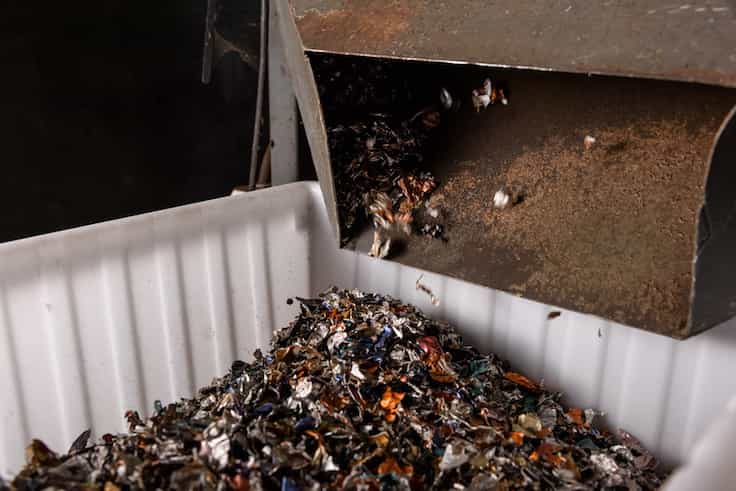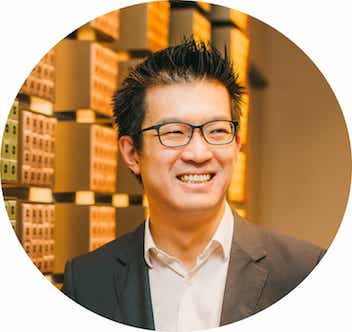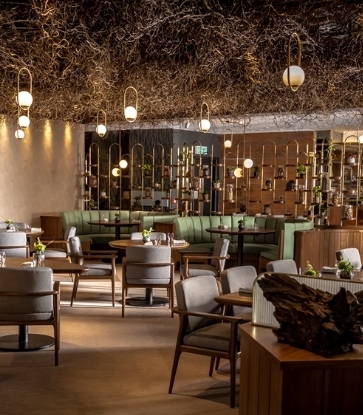Like every other morning, you wake up and you brew your cup of coffee, starting the day with the irresistible aroma of coffee and the comforting warmth of every sip. But right after you've enjoyed your coffee, one thought always crosses your mind — what should you do with the used coffee grounds?
Most people will drop them directly to the bin, but this doesn't have to be the only way. Even after the coffee extraction process, coffee grounds are still full of nutrients that can benefit our daily lives – and our gardens – in many ways. With the growing emphasis on sustainability across all sectors of society, more individuals and organisations are discovering the possibility of reusing these coffee grounds by turning them into useful items.
One such organisation is Nespresso, which started its sustainability program in Switzerland over 25 years ago and introduced its recycling program in Hong Kong in 2011. Through the Recycling@Home service, Nespresso collects the used coffee capsules from the homes of their customers and sends them to a local plant. Nespresso also goes the extra mile by extending this service to their corporate partners, such as hotels and restaurants.
At the plant, the coffee grounds are separated from their aluminium casing, and the coffee grounds are then sent to Hong Kong Organic Waste Recycling Centre for further processing into farm compost. Customers can also drop the used capsules at their nearest Nespresso boutique. According to the company, they can recycle 100 per cent of the capsules that are returned to them.


As An Odour Neutraliser
“Used coffee grounds help to neutralise odours, so one of the best ways to recycle them is to place them in the fridge as an odour remover. To do this, you first have to dry the coffee grounds inside the capsules by placing used capsules near windows or places with good ventilation. Once the capsule and the coffee grounds inside are dry, place them anywhere in the fridge. This also works well in shoe cabinets, cupboards and closets. It’s a simple way to keep your home or office smelling fresh and at the same time give your used capsules a second life”
- Justin Lam, Business Executive Officer, Nespresso Hong Kong and Macau
Lam recently took over the role of Business Executive Officer of Nespresso Hong Kong and Macau on 1 October 2019, and is responsible for defining and driving Nespresso's commercial and brand development strategies in these two markets. Lam hopes to tap on his deep understanding of the brand and the coffee industry to introduce new brand and product innovations.

As A Natural Cleaning Scrub
“Add a little bit of salt and ordinary soap to the used coffee grounds and you can use the mixture to scour your sink, polish your cookware or clean your grill. Just be careful not to use them on any kind of porous material, as they can cause brown stains.”
- Vicky Cheng, Chef Ambassador, Nespresso Hong Kong, and Executive Chef & Owner, VEA Restaurant and Lounge
Born in Hong Kong and raised under Western influences, Cheng is the chef-owner of one-MICHELIN-starred VEA Restaurant and Lounge and the first Chef Ambassador of Nespresso Hong Kong. Cheng's embrace of his Asian roots and heritage is reflected in his cuisine, which combines French gastronomic techniques with the use of fresh, authentic and seasonal products sourced in and around Hong Kong.

As A Plant Pot
“Coffee grounds are an excellent nitrogen source for composting as they improve soil tilth and structure. Instead of growing plants in unnatural environments, such as with pots made from plastic and other synthetic materials, we believe in creating a plant pot that uses 100 per cent natural materials. By mixing coffee grounds with food waste, we can allow them to grow easily in nature.
When we make the plant pot, we form its shape by pressing the ingredients in a mould with heat. Unlike PLA or other bio-plastics, the
- Chen-Hsiang Chao, Founder & Managing Director, Bionicraft
Chao is an architect and co-founder of Bionicraft, a design studio specialising in sustainable design, environmental architecture and creative problem-solving. Bionicraft's efforts to turn Nespresso’s collected coffee grounds into plant pots was part of Nespresso's recent sustainability-themed pop-up program at Elements Mall.


As Compost
“Used coffee grounds are rich in nitrogen. They can be a very good source of nutrients for the soil if they are used wisely. Rules of thumb: do not use them directly on your plants, make sure you always decompose them before sprinkling them in your garden. This is because the composition of coffee grounds needs to be degraded before plants can absorb their required nutrients. The second reason is that the heat produced during the decomposition process can damage plant roots. That’s why it’s important not to use coffee grounds directly.
- Hermia Chung, Co-Founder, FoodCycle+, and Site Manager, Hong Kong Organic Waste Recycling Centre
With years of experience as an Eco-Tour tutor at Produce Green Foundation, Chung has worked for farms in New Zealand and Australia and received her Permaculture Design Certification in Australia. She has also spent years promoting upcycling and the reuse of local organic resources. She is currently using Nespresso's coffee grounds at the Hong Kong Organic Waste Recycling Centre as farm compost.

As An Educational Tool
“Nature is our muse and our classroom where we can learn about the wonders of the local environment and more about ourselves. At Nature Discovery Park, we collect used coffee grounds from Nespresso, and hold workshops where we use the grounds to interest people in the benefits of being sustainable. In our 'Farm-to-face' beauty product-making workshop, we explore the potential of turning used coffee grounds into natural handmade soap that can be used as a body scrub.
Besides these, we also have a food waste composter on our premise. The machine is where we give the grounds a second life by composting them with fruit and vegetable peelings and use them as compost on our farm. You’ll see how fruitful the result is when you join our Nature Discovery Tour, where you can discover the 180 native and exotic species of plants with distinctive and ecological values in our park. In this 'classroom', people will understand that there are alternatives to sending the grounds to landfills, and we hope that Nature Discovery Park can inspire the public to reduce their carbon footprint and adopt sustainable habits in their daily lives.”
- Ellie Tang, Director, Nature Discovery Park
Nature Discovery Park is Hong Kong’s first urban biodiversity museum and sustainability-themed education park. Through the park, Tang hopes to help preserve the city’s rich biodiversity and educate future generations on the importance and wonders of the natural world. With the opening of its K11 MUSEA branch, Nespresso will work with Nature Discovery Park to offer public planting workshops.



















